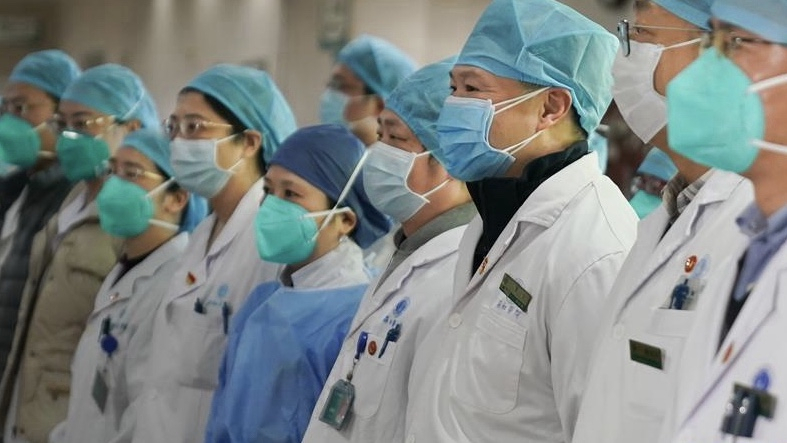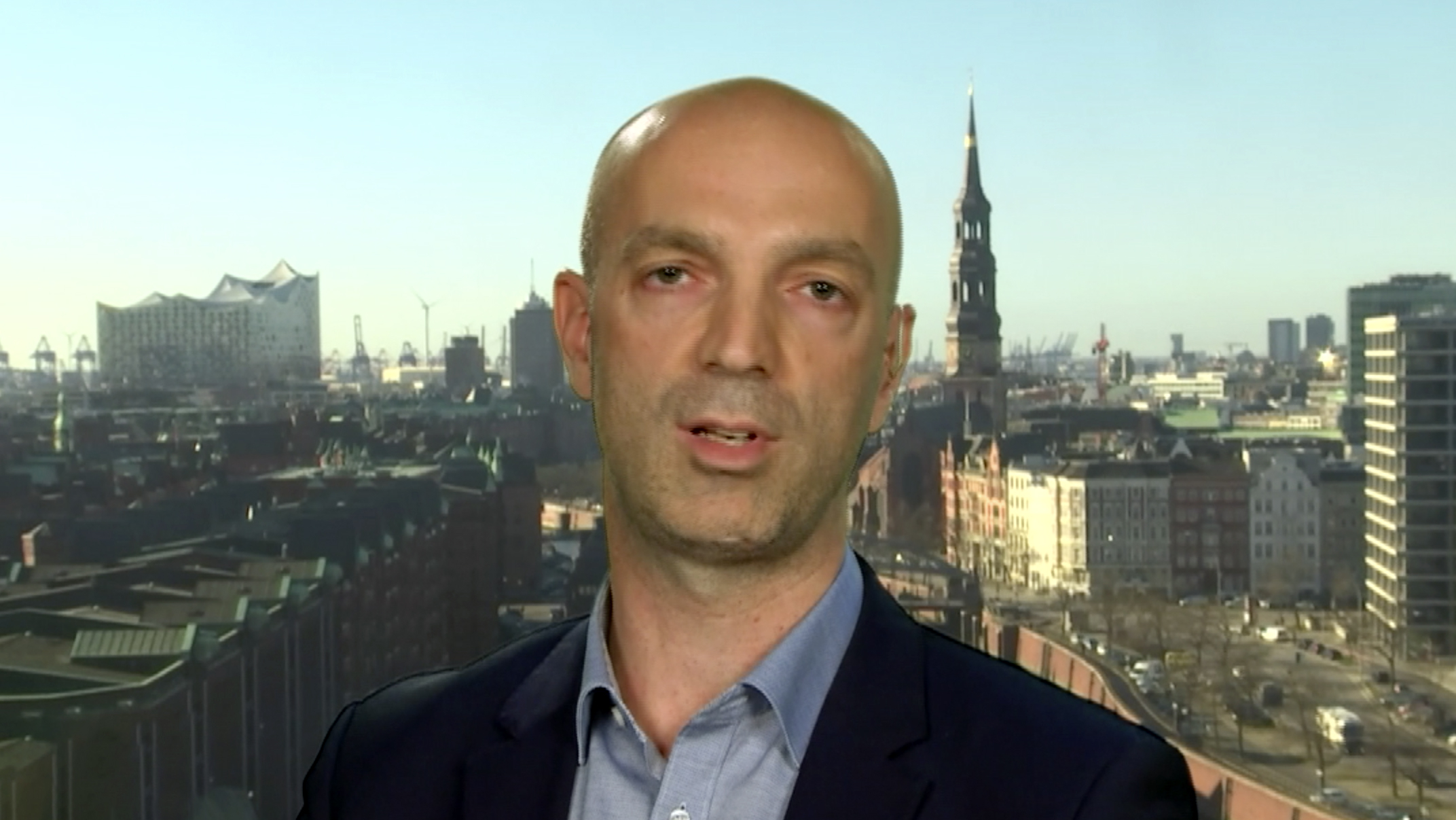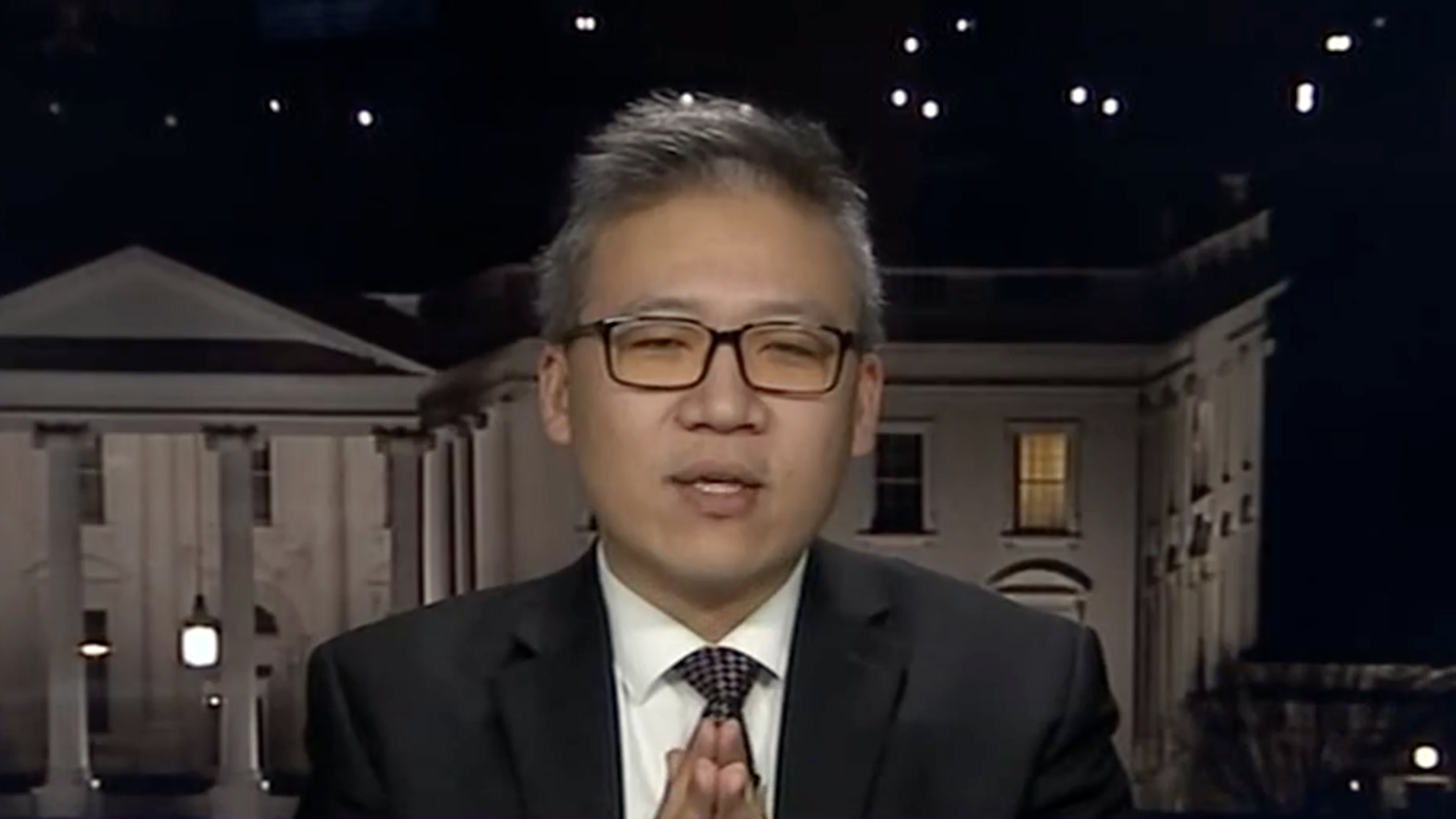00:50

When asked if the novel coronavirus has become a pandemic, Eric Ding, epidemiologist and health economist at the Harvard School of Public Health, said it is getting very close to a pandemic, with a slightly lower mortality rate for now, but the developing trajectory is very rapid.
"SARS took three months to reach 8,000 cases, we reached 8,000 cases last week, only took one month instead of three months for SARS. This is a much faster trajectory, so we have to be very watchful."
Babak Javid, Tenured Principal Investigator at Tsinghua University's School of Medicine, said that a large number of people have already left Wuhan before the lockdown, so the number of people that are actually infected before the lockdown is very critical. He also mentioned that "the dynamics and severity we see in Hubei seem to be totally different from what we see in the rest of China and the rest of the world."
Prof. Jonas Schmidt-Chanasit, at the Bernhard Nocht Institute for Tropical Medicine, said new medication and vaccine are in experiments but still months away before they could be available.
00:41

"Mostly, it's a symptomatic treatment, clinical trials are ongoing. We have to wait for those results of the new drugs. I'm also looking forward to the vaccine candidates when they will be in place. It might take some time. I'm not talking about days or weeks, more like months. However, it's on the horizon. So we really have to wait. It's too early to say if this would really have an effect now."
Prof. Jonas Schmidt-Chanasit also mentioned that symptomatic individual treatment in the ICU is used for patients in critical condition. "In Wuhan, we deal with a lot of severely ill patients. So we cannot compare the situation in Wuhan with outside China or with other cities in China. And the factors that led to a high amount of severely ill patients are still not clear. We really have to wait a few more weeks and days to get an answer to all questions."
Eric Ding said he is also confident that drugs to deal with the novel coronavirus will be available in the next few months. "There are a lot of anti-virus drugs being tested. There are four or five drugs registered just in the past week. So I'm very hopeful that we could get some results within a couple of months."
00:24

A claim by scientists that "Shuanghuanglian" – a popular combined herbal remedy, could help fight the deadly coronavirus has sparked frenzied buying of the traditional medicine, but doubts quickly emerged, and many wonder if traditional Chinese medicine can really help fight the coronavirus.
Prof. Jonas Schmidt-Chanasit stated that only the pure compound of certain traditional Chinese medicine could prove to be helpful in treating the coronavirus. "If you can isolate or characterize the compound, then a pure compound can be applied. But this is not the case yet.
"Dialogue with Yang Rui" is a prime time English-language daily talk show on CGTN. The 30-minute program covers a wide range of domestic and international topics, providing a balanced and critical perspective on current affairs and analysis within the framework of cross-cultural and multi-disciplinary comparisons.
Schedule: Monday-Sunday
Time (GMT): 03:30, 11:30, 19:30
(If you want to contribute and have specific expertise, please contact us at opinions@cgtn.com.)